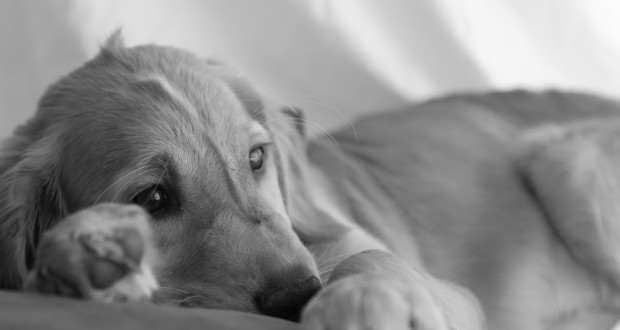By Jordan Walker
Grieving and dealing with the loss of a pet is a highly personal and individual experience. Anyone who has gone through this can relate to the feeling of utter devastation and sadness at the realization that their beloved cat/dog/best friend/loyal companion/honorary family member is lost forever. This is understandable because for most of us who have pets, our bond with them can be as close as the bond we share with fellow human beings. That’s why when a pet dies, the grief that follows can also be as intense as when we have lost a person we love.
Dealing with the loss of a pet can be so hard, but know that grief is a natural part of the process and that you are not alone. If you need a little help and understanding to help you cope with the loss, here are a few pieces of well-meaning advice from a pet owner who has gone through the same thing.
Take time to grieve. You just witnessed the last precious moments of your pet and had to say a hard goodbye, or have yet to react to your pet’s sudden death. Feelings that automatically come to the forefront are shock, sadness, depression, devastation, even guilt and anger. If these are what you’re feeling right now, it’s okay to give in. It’s normal. At the same time, you also have to understand that grieving is different for every person. Some people spend a day or two cooped up in their room, looking at photos of their pet and remembering all the good times, while some don’t even want to look at anything that belonged to their pet or anything pet-related at all. Some feel a bit depressed for days, while others cry for a moment and attempt to compose themselves immediately afterwards. The level of grief depends on many factors including the level of attachment you have with your pet, and the circumstances of their death. Generally, the more significant the loss, the more intense your feelings will be. One thing that’s also true is that over time, your grief will be less intense, though there will still be times you’ll feel the sense of loss whenever memories are triggered like on your pet’s birthday or death anniversary. Again, this is normal.
Understand that your grief matters. While there will be some people who won’t understand nor share the depth of your feelings, saying statements like “Why are you crying? It’s just a pet”, that doesn’t make your feelings less real, less important, or even abnormal. Avoid anyone who tells you what you should feel, that it’s not right, or who makes you feel bad about your grief. You should never feel embarrassed or guilty about your feelings because the truth is, your pet meant a lot to you. You shared a kind of love and companionship that not everyone experiences or understands. That’s part of the reality of owning and caring for a pet. And in life, the things that matter to us the most make us feel the most intense emotions. Do not give anyone the power to devalue your grief.
Reach out to others who have also lost pets. You might find that the best support group for your grief may come from outside your circle of family and friends. If you feel the need to, seek out other people who have gone through the loss of a pet. Check out pet loss hotlines, pet loss support groups, websites and online communities that provide a sympathetic venue to listen to what you want to share or give advice on how to deal with grief based from their own experiences.
Continue your normal routines. This is important especially if you have other surviving pets that depend on you. Surviving pets also feel down and depressed at the loss of their fellow pet companions, and they may even pick up on your own feelings. Even if it’s hard at first, stick to their daily routines—feeding, bathing, grooming, playing, and spending time with them as to what they were used to, so they wouldn’t fall by the wayside. Pets are also creatures of habit; even the smallest changes in their routines or their owner’s emotions can have an impact on them. The most important thing is to continue loving and caring for them, like you did with the one you lost.
Create a lasting memory. Dedicate a worthwhile undertaking for the memory of your beloved pet. Some suggestions are: putting up a memorial, planting a tree, volunteering at an animal shelter, organizing a pet party, or compiling a photo album/scrapbook/soundtrack of your pet’s life. You can be as creative and original as you can, and don’t bother with what others will think. Allow the fond memories and your love for your pet to inspire you.
Adopt a new pet. Of course, no one can replace the beloved pet you lost. All pets are unique and have their own qualities that make them endearing to you. But if you’re ready and open for this option, you might find that adopting and caring for a new pet reinforces your love of pets and makes caring for them a truly worthwhile endeavour despite the reality of mortality.
About the Author
Jordan is the lead content curator for Coops And Cages as well as a couple of other pet related blogs. His passion for animals is only matched by his love for ‘attempting’ to play the guitar. If you would like to catch him, you can via Google+ or Twitter: @CoopsAndCages.
 Dog Living A lifestyle magazine for dog lovers
Dog Living A lifestyle magazine for dog lovers





